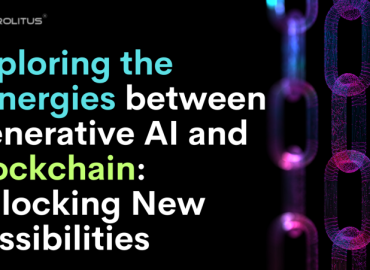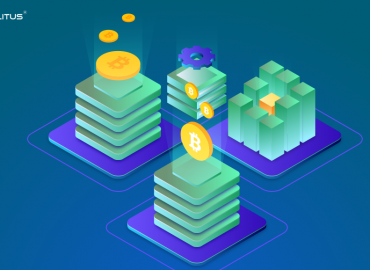As interest in blockchain video games grows, it’s critical to distinguish between the two types of games. Blockchain-based systems like Kronoverse, which take Bitcoin as payment, are just the beginning of what’s to come. The fundamental workings of blockchain in gaming and traditional gaming differ, even though they may be played on any platform, including smartphones and desktop PCs alike.
A blockchain game’s in-game objects don’t expire as in traditional games like Xbox One and PlayStation 4. Everything you win, collect, or buy it in your virtual wallet, like in Axie Infinity, and you can access it at any time by clicking on the item. In the case of a game collapsing or your account being suspended, this assures that you will not lose any in-game stuff that you own. For instance, if you lose connection to the internet following completing and winning CryptoFights Combat, you retain all of your weapons and armor. Although if your account is temporarily suspended, you will still be able to trade stuff. Thanks to blockchain technology, you can also track all transactions, from purchases to trades.
Unlike traditional games like GTA and FIFA, blockchain games don’t rely on a central server to operate. For the first time in the history of computer or video games, you can see what actions you’ve performed and what other players have done, thanks to blockchain technology. Players and game producers benefit from the increased freedom and security that blockchain games provide because of their decentralized nature.
Scope of blockchain gaming
Blockchain in gaming is poised to take over the world in the future, so now is the perfect time to explore its potential. Although the gaming industry employs cutting-edge technology, there are still many areas that may be improved. In the game industry, the following are the areas where implementation blocks are most effective and the scope of blockchain gaming:
Since many online games aren’t free, you’ll have to pay your cash to play them. In the gaming sector, there is no point in using your fiat currency; hence, it makes sense to implement Blockchain gaming. You can use digital currency to buy games and digital assets or to prolong your subscription to games like Sandbox and UFO Games through the support of digital currencies.
A safe atmosphere for developers and independent gaming at sea is vital. Blockchain will increase game security. As they approach monetization, they need fast payment blocks.
As a player, you’ll need to use your bank’s payment options while making a purchase in a game. Because of increased fraud, utilizing the banking system’s apps to make a payment has become a little unnerving. Blockchain-based cryptocurrency applications make it easier and more secure to conduct transactions.
You must construct your profile every time you log in. However, if you want to play many games at the same time, you’ll have to set up different profiles, which takes a long time. Consequently, blockchain can also be used in this area. A network set that anyone can access from every location as well as from any block is also referred to as a location.
The immense potential of blockchain gaming
The use of blockchain in gaming is rapidly becoming the most significant topic of conversation across a wide number of industries, including the fashion industry, the financial industry, the art industry, and surely the gaming industry as well.
The software, hardware, and intellectual property components of the video gaming industry are collectively estimated to be worth a stunning $336 billion by the venture capitalist Bitkraft. As the industry has grown, it has continued to use the most cutting-edge consumer technology, such as high-quality graphics, realistic sound, 3D, and virtual reality (VR).
Currently, blockchain protocol has been similarly incorporated into the ever-expanding scope of video games, and there is a good rationale for this development, especially in games like Illuvium and Decentraland. Decentralized blockchains throw open the door to verified digital ownership, making it possible for players to legitimately claim ownership over the objects they use in-game.
In addition, the income mechanisms that are used in blockchain gaming are often oriented toward the player rather than just ending up in the wallets of the game designers and creators. This new approach is enabling an altogether new digital economy that has ramifications for the physical world. Most of this economy has not been explored yet.
Blockchain gaming to make gaming a full-time profession
As a result of the possibility that people may make the same amount, if not more, through playing blockchain games, many people are prepared to leave their current occupations to pursue this career path full-time. Filipino player Jesus Dawal Jr. told Cointelegraph that NFT game revenues are not enough. There is no question that blockchain in gaming is indeed an original idea, but Dawal does not feel that blockchain in games will be adequate to sustain him monetarily on its own in the foreseeable future. Despite saying that, he also states that he is willing to join in after the environment has matured, which is something that contradicts what was just stated. On the other hand, the executive of the blockchain gaming company points out that it is not solely blockchain gaming that is stocking up but also crypto possibilities.
According to a report that was published in 2021 by the BlockchainGaming Alliance (BGA), blockchain gaming was responsible for generating more than $2 billion in income during the third quarter of 2021. According to the BGA, this accounts for 22% of the total NFT trading volume.
In addition to contributing to the economy, members of the blockchain in gaming society have also demonstrated a charitable spirit. After a super typhoon hit the Philippines and hurt more than 4 million people a year ago, blockchain gamers led by YGG started a charity event that raised more than $1.4 million to help those who had been hurt.





